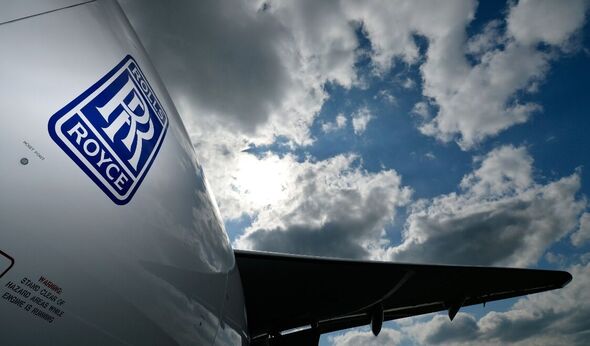
ROLLS-ROYCE INCLUDED IN HUGE £113M CASH PACKAGE TO DEVELOP GROUNDBREAKING NEW JET ENGINE
Rolls-Royce is getting a huge cash injection to develop a groundbreaking new hydrogen-powered aircraft engine. It is one of several projects being backed by a £113 Government investment going towards the decarbonisation of flying. State cash is being pumped into lightweight batteries for small aircraft and projects being led by Rolls-Royce to develop a zero-emission liquid hydrogen combusting jet engine.
The Aerospace Technology Institute (ATI) Programme will see both Government and industry jointly backing new technologies to unlock the potential for near carbon-free flying as the UK scrambles to hit net zero emissions by 2050.
Grant Shapps, who has now been made Secretary of State for Energy Security and Net Zero, said: "As the whole world moves to greener forms of aviation, there is a massive opportunity for the UK's aerospace industry to secure clean, green jobs and growth for decades to come."
In July last year, the British engineering giant announced that it struck a deal with South Korean automaker Hyundai to develop all-electric propulsion and hydrogen fuel cell technology for the advanced air mobility market.
The firm has hailed hydrogen and electric-powered aircraft as the future of air travel, claiming the technology will "prove the fuel can safely and efficiently deliver power for small- to mid-size aircraft from the mid-2030s onwards".
Warren East, the former Chief Executive of Rolls-Royce, has previously said that Rolls-Royce "can't wait" for hydrogen, which is expected to be a vital technology for the entire aviation industry. The industry will consider the power source a potential sustainable aviation fuel (SAF). Sustainable aviation fuels are fuels that will eventually be net zero.
When a sustainable aviation fuel is burnt in an engine, it takes an atom of carbon from the atmosphere at puts it back into the atmosphere again.
Hydrogen cells also have a higher energy density than the lithium-ion batteries used in electric cards, as well as diesel engines. However, concerns have been raised over the commercial viability of hydrogen generation, particularly for the production of green hydrogen.
Speaking to Sky News in July, former Rolls-Royce CEO Mr East said: "But it is one of the tools available for the sector to get to zero carbon aviation and therefore we have to explore that route."
READ MORE: Skies over parts of UK turn 'fiery' red in rare sunset phenomenon
"Well I think hydrogen is one answer, and certainly there are some serious technical challenges that the industry as a whole will have to overcome before we have a larger aircraft powered by hydrogen."
Previously speaking to Express.co.uk Rolls-Royce CTO Paul Stein said there are three different pillars involved in the path to sustainable aviation.
He said: "We are making sure all our existing products that we make that we know are going part of our future are net zero compatible.
"Aviation is always as seen a hard-to-decarbonise sector, and as a company, and we believe it is hard to decarbonise.
DON'T MISS Long-lost ship bearing £16.5m in gold coins may be salvaged [REPORT] Major nuclear fusion step forward brings UK closer to limitless energy [REVEAL] Meet the Australian firm reviving UK's first gigafactory dreams
"But all sectors are hard to decarbonise and there isn't a magic bullet behind anything and we're trying to help all sectors as much as we can.
"The first pillar [of decarbonising] is making our engines more and more efficient, because whatever happens the fewer emissions that come out of the better.
"At Rolls-Royce, one of our big contributions to that is our technology called ultrafan, the next generation of big engines that are designed to have 10 percent fuel efficiency over our previous engines, and very importantly, are designed to be 100 percent compatible with sustainable aviation fuels out of the box."
2023-02-08T10:17:28Z dg43tfdfdgfd